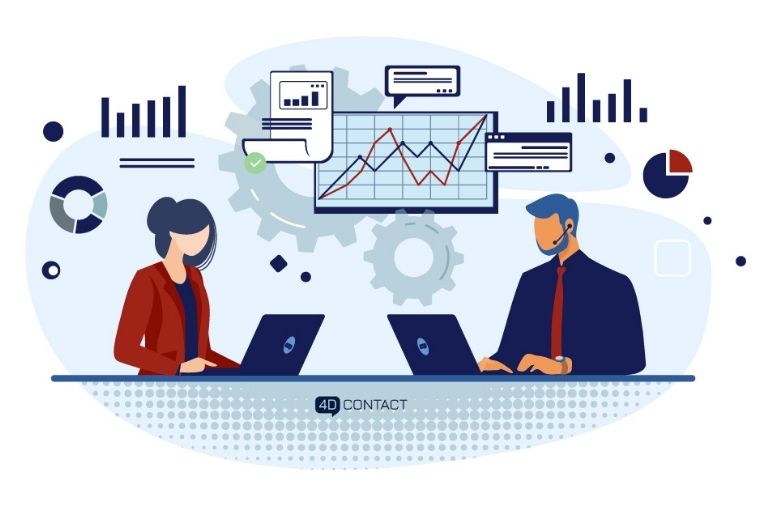With The Kaplan Group, there are no setup or membership fees. The agency works solely on a contingency basis, and you only pay if the agency collects money owed to you.
For large outstanding debts, the contingency fees are quite low: 15% for balances between $50,000 and $500,000 and 10% for balances over $500,000. If the outstanding debt is with a foreign company, the contingency fee is 30%, regardless of the claim amount.
As a new client, your first claim must be for at least $10,000. Otherwise, you’re ineligible to work with The Kaplan Group and will need to find another agency. There is a $1,000 minimum on all claims, except in special cases for long-term clients.
The company boasts an 85% success rate. According to the agency, the industry success rate is just 50% at seven months past due. The Kaplan Group is accredited by the IACC and the Better Business Bureau (BBB) with an A+ rating.
Why We Chose It: For businesses looking for a commercial debt collection agency, The Kaplan Group is a good fit for you. With low contingency rates for large claims over $500,000 and a high success rate of 85%, you can maximize the money owed to you without paying setup or membership fees.
3. Best for Consumer Collections: Summit Account Resolution
Pros
- Experience in medical industries
- Monthly collection reports to see status
- Online portal
Cons
- Potentially high fees up to 50%
- Additional costs may apply (such as for litigation)
- No international expertise
Summit Account Resolution has been in operation for over 20 years. Available nationwide, it focuses on consumer collections, particularly in medical and dental collections. It promises to uphold professional relationships so you can retain your customers throughout the collections process, avoiding overly aggressive collection tactics.
Contingency fees range from 7.5% to 50%. Depending on the age of the claim and the balance, you could end up paying fees on the higher end of the scale. In some cases, you may have to pay additional fees such as litigation costs to recoup the outstanding debt.
Each month, an account representative will send you a detailed collections report, giving you information on the collections process and where each claim stands.
While Summit Account Resolution does offer commercial debt collection, it does not showcase any international expertise or experience. If you have foreign clients, you may want to choose another agency that specializes in global collections.
Summit Account Resolution is accredited by the Association of Credit and Collection Professionals (ACA) and the Better Business Bureau with an A+ rating.
Why We Chose It: For businesses that work directly with consumers on a continued basis, such as medical offices, landlords, and veterinarians, Summit Account Resolution can help you collect the money that is owed to you without damaging the relationship you have with your customers. The agency gives clients detailed monthly reports, and you have access to an online portal to place new accounts into collections.
4. Best for Small Businesses: Rocket Receivables
Pros
- Guarantee on fixed-fee collections as low as $14.95 per account
- No setup or membership fees
- Online portal access
Cons
- High contingency commissions up to 50%
- Debt older than 120 days is automatically placed in stage two
- Lack of accreditation
Rocket Receivables, owned by TSI, is a debt collection agency specifically designed for small business owners. It caters to the healthcare, education, residential, trade, and retail industries, offering simplified debt collection services.
There are no setup or membership fees to begin work with the agency. You only pay a fixed fee or contingency fee for the actual collection activity.
Rocket Receivables has two stages for debt collection:
Stage One
For accounts that are not yet 120 days past due, stage one is an early intervention debt collection service. With a fixed-fee pricing structure, you keep 100% of the amount collected. Pricing is dependent on how many accounts you have but ranges from $14.95 to $21.95 per account.
As part of stage one, four letters are sent out to debtors—one in your name, and three in Rocket Receivables’—to remind clients of the amount owed.
Rocket Receivables guarantees that you’ll get double the money you invested in its stage one, fixed-fee collections program. If that guarantee is not met, you qualify for a refund.
Stage Two
For older accounts or more complicated cases, stage two includes more intensive debt collection practices, including skip tracing, calls and negotiation tactics, and legal action. Once the client pays, Rocket Receivables will take 50% of the amount recovered.
If Rocket Receivables is unable to collect on the debt, you don’t pay anything. Debt that is older than 120 days is automatically classified as stage two debt, which is subject to the higher contingency commission costs. You can’t opt for that debt to be in the cheaper stage one.
Why We Chose It: While Rocket Receivables isn’t accredited by the ACA or BBB, it offers small business owners an easy-to-use option with a simple fee structure. For fixed-fee collections in stage one, Rocket Receivables also offers a guarantee: You’ll double the money you pay for the service or you’ll get your money back, minimizing your risk.
5. Best for Low Invoice Amounts: Prestige Services Inc.
Pros
- Low debt minimum of $200
- Rates may be negotiable on larger accounts
- Contingency rates as low as 25%
Cons
- Added fees for attorneys
- Only serves B2B
- Not accredited by major trade associations
Prestige Services is a debt collection agency that specializes in the collection of domestic and international commercial accounts. The agency has been in operation since 1996. While most commercial debt collection agencies have high debt minimums, Prestige Services is willing to work with accounts that have outstanding balances as low as $200.
The agency works on a contingency basis. According to the company, its rates are 5% to 10% lower than other agencies’ rates, on average. For accounts of $200 to $3,000, the commission is 25%. The commission on accounts of up to $20,000 is 22%, but the rate on accounts over that amount may be negotiable on a case-by-case basis. However, there are some added fees to keep in mind. If an account is forwarded to an attorney, the rate is 35% to 40%.
Prestige Services only services commercial accounts. If you’re looking for a collections agency for consumer accounts, you’ll need to find another company. While it’s not accredited by a trade association, Prestige Services is accredited by the Better Business Bureau and has an A+ rating.
Why We Chose It: Because many commercial debt collection agencies have high debt minimums, many businesses may struggle to find an agency willing to work with them. However, Prestige Services is willing to accept accounts with minimums as low as $200, and its commissions are on the lower end of what agencies typically charge.
What Is a Debt Collection Agency?
If an invoice is past due, businesses can hire a debt collection agency to act as a middleman on your behalf to collect on that debt. Typically, debt collection agencies will charge you a percentage of the amount collected. In return, they will do the following:
- Send your client letters via email, post, or fax to notify them of the debt and late payment
- Call the client requesting immediate payment
- Skip tracing to locate clients who have closed or moved operations
- Litigation
- Debt settlement
Debt collection agencies can pursue outstanding debt aggressively, but they must abide by the federal Fair Debt Collection Practices Act, and there are certain tactics agencies are forbidden from doing.
What Is the Difference Between a Debt Collector and a Collection Agency?
When you hire a debt collection agency, you retain ownership of the debt. You are simply hiring the agency to act on your behalf to recover the outstanding money owed.
By contrast, a debt collector or debt buyer is a company that buys the debt from you. Once you sell it, you no longer have any access or control over the account. The debt collector will use their own means to collect the money owed, including tactics like settlement or even litigation.5
Hiring a debt collection agency gives you more control over outstanding debts. And, with a reputable company that handles the process professionally, it’s possible to collect the money that’s owed to you and still retain your customers.
When you sell your debt to a debt collector, you lose that control—and you’ll likely lose a customer, too. However, the tradeoff is that you’ll get an upfront payment. If the customer is no longer a viable client, it may be worthwhile to sell the debt to get some of the money back that is owed to you.
How Should I Choose a Debt Collection Agency?
When choosing a debt collection agency, it’s important to do your homework. Consider the following factors:
- Fees and Commission: A good fee structure is between $10 to $15 per account.
- Debt Minimums: As low as $200, but often several thousand dollars or more.
- Success and Recovery Rates: Ask for a company’s success rate and do the math to see if the fees are worth what you will get back.
- Customer Service: Check online reviews for reports of the company’s customer service.
- Accreditation: Top debt collection agencies are licensed in your state and accredited by trade associations like the Association of Credit and Collection Professionals and the International Association of Commercial Collectors. These organizations set and maintain strict ethical standards for debt collection agencies.
- Litigation: You can look up enforcement actions the Consumer Financial Protection Bureau (CFPB) has taken against debt collection agencies by searching for the company on the CFPB website.
How Much Does a Debt Collection Agency Cost?
When hiring an agency, keep in mind the different cost structures that include:
- Fixed Fees: For fixed-fee collections, you’ll generally pay $10 to $15 per account.
- Commissions: For firms that charge contingency commissions, you should expect to pay 25% to 50% of the total amount of debt collected.6
- Setup or Introduction Fees: Some firms charge setup or introduction fees, which can add to your cost. For example, Atradius Collections charges a $49 introduction fee for international accounts.
How We Chose the Best Debt Collection Agencies
To select the above debt collection agencies, we researched 15 national companies. The criteria for measuring each one included minimum debt, fees and commissions, success rates, accreditation, and the inclusion of additional features. The most important factor in determining whether or not an agency was included in our list was transparency in fees. Agencies were immediately eliminated if their fees were not clear.



